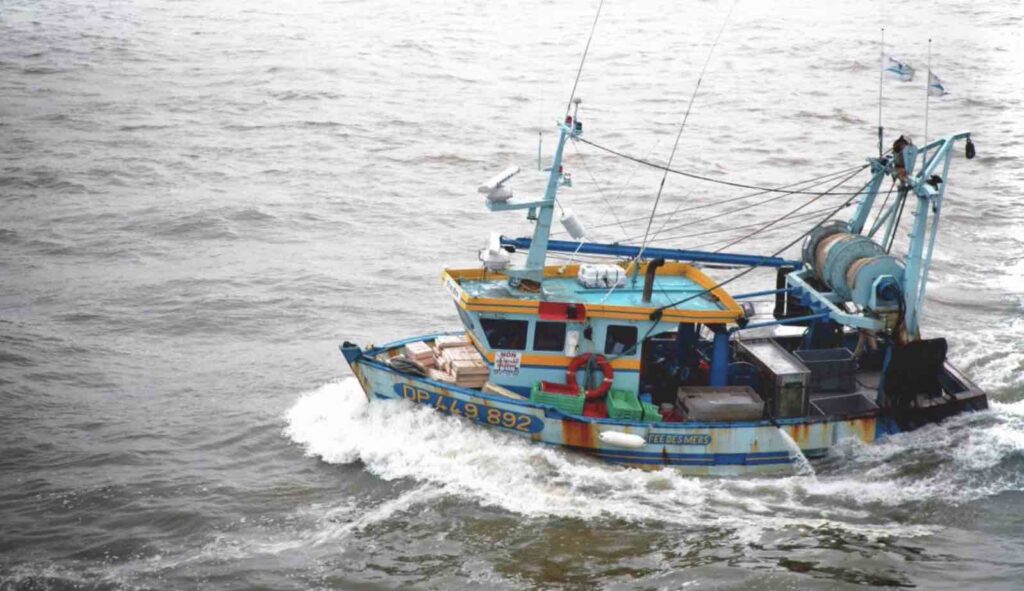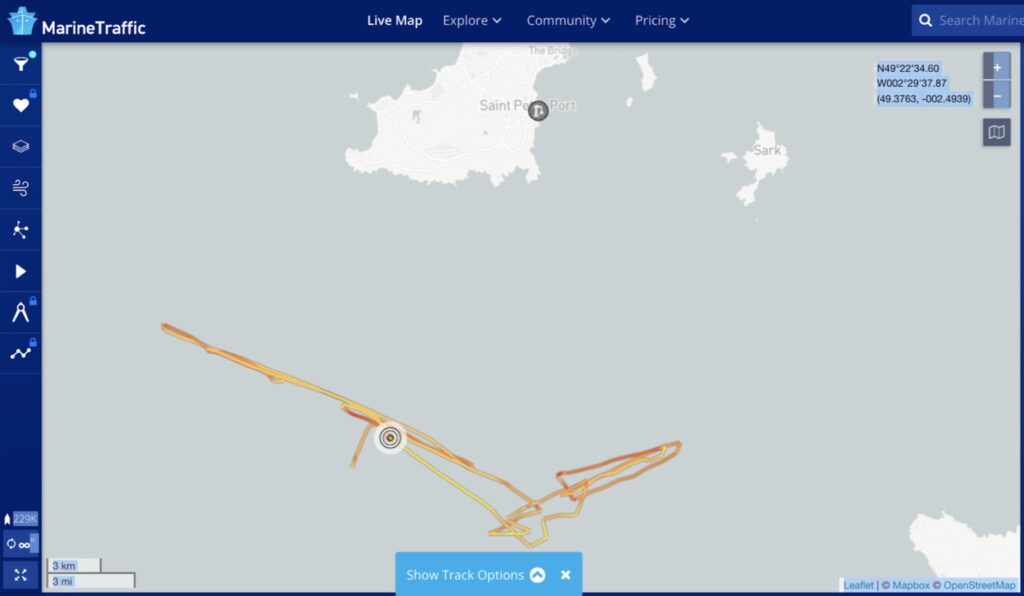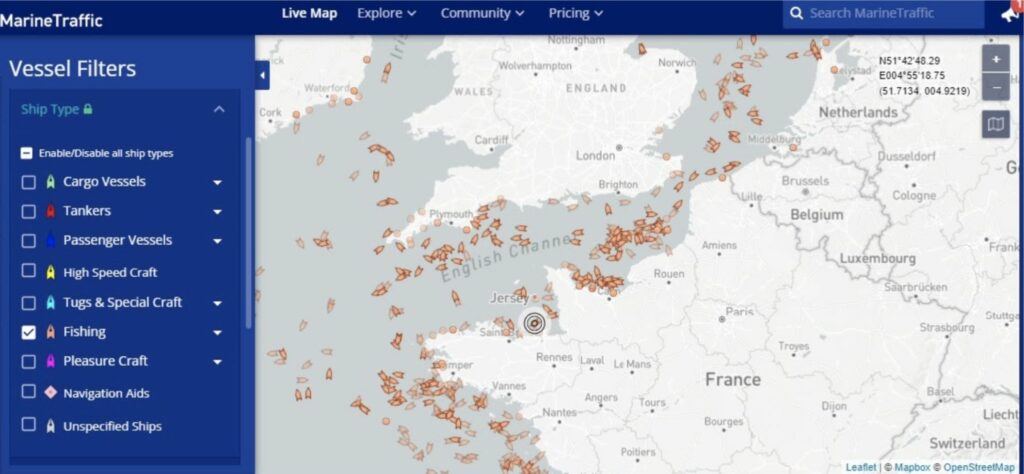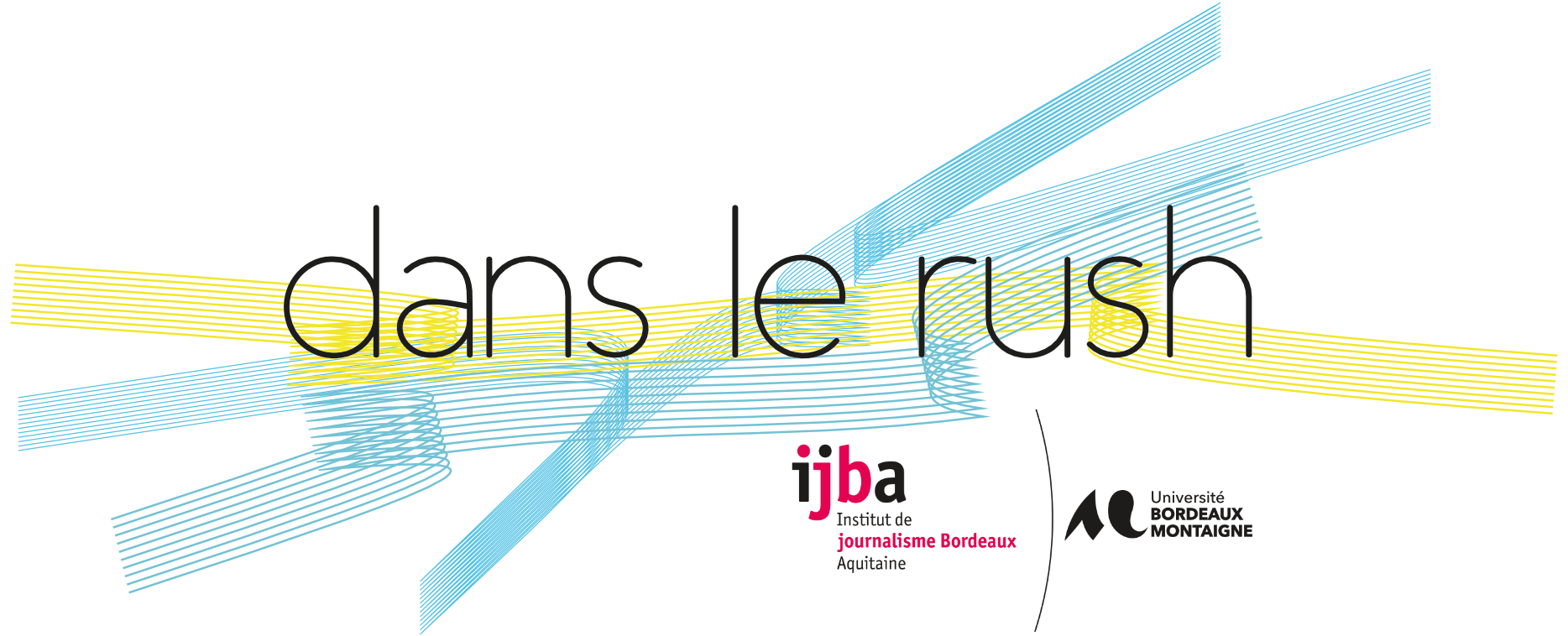In December 2021, 735 French fishermen were granted licenses by the British government to pursue their activities in British waters. The ones left out have expressed their anger publicly but have they been respecting the decision? We looked into this matter and found that rejected trawlers do not appear to be entering the areas where they are legally banned.

After months of crisis, the dispute between the French fishermen and the British authorities has calmed down. On 11th December 2021, the British authorities granted licences to 735 vessels for the year 2022. This will allow French trawlers to access the British exclusive economic zone (EEZ).
While the announcement satisfied most shipowners, tensions remain high over access to the so-called « 6 to 12 mile zone » along the coast. This zone, which is the richest in fish, between the southern North Sea and Wales, is still reserved for a minority of fishermen. Only 17% of them have a licence to access it. Further permits are required to work in the area of the semi-autonomous islands of Jersey and Guernsey. To date, Jersey has issued 125 fishing licences to French vessels.
Until a few months ago, several unlicensed professionals were threatening to continue dredging the seabed of the British 6 to 12 miles. This was the case for Loïc Escoffier, who has since obtained his license. This fisherman from Saint-Malo expressed his outrage in an interview with FranceInfo on December 10, 2021: « We will be outlaws, but we will still make our targets. For that, the French government will have to back us. »
For the few dozen professionals who have yet to obtained a license, bitterness dominates.
Constant tracking
Since January 1st 2022, these rules seem to be respected. The fishermen remain in their working area. And unlicensed vessels do not appear to be venturing into waters where they are not allowed. The Marine Traffic website, which records maritime traffic online, makes it possible to locate the vessels and to trace their routes. Their tracking is ensured by automatic identification systems (AIS). These GPS beacons allow real-time tracking of vessel movements when equipped. Originally designed to regulate maritime traffic, AIS must be permanently switched on and the vessel visible at all times. This constant traceability makes it impossible for ships to fish on the English coast without being spotted.

Route of a fishing boat off Jersey. © screenshot from MarineTrafic.com
Those who try to deactivate the AIS to escape the radar are quickly discouraged notably because urning off the beacon, alerts coastal authorities who monitor vessel traffic. Deliberately turning off the system is seen as a violation of the Safety of Life at Sea Convention (SOLAS). The risks incurred by the captain are then important. In the event of an accident, insurers can, for example, invoke the intentional shutdown of the AIS to avoid covering the damage.
That being said, commercial vessels less than 15 meters long are not required to be equipped with AIS. Small-scale fishermen can go unnoticed and illegally enter English waters.

Fishing boats visible In real time with AIS tracking. © screenshot from MarineTrafic.com
Whatsmore, fishermen can easily play with the borders. On the website Marine traffic, it is possible to observe some boats that post themselves at the limit of the 6 to 12 mile zone. They can thus take advantage of the most fishy waters while respecting the rules. These fishermen have no risk to be worried.
Negotiations still ongoing
Since Brexit, fishing has been at the heart of tensions between France and the United Kingdom. British fishermen no longer have the right to dive their nets without permission in European waters, and by extension French waters, of the North Sea. On the other hand, the Crown has sovereignty over all its maritime resources. This limits French trawlers to French fishing zones, which represents a major loss of income. Until now, 30% of the catches of French trawlers were made in English waters, which are richer in fish.
With their license in hand, French fishermen are now waiting for the terms and conditions to be fixed. Quotas, period, technique… The period of uncertainty is not over. France is going to demand that the European Commission initiate a legal procedure against the United Kingdom and is launching a « support plan » for the professionals who have remained on the quayside.
Juliette Brossault, Luca Campisi, Fanny Narvarte
BLACK BOX
The article is based on numerous resources. First of all, we had access, via the British government website, to a complete spreadshit listing British vessels authorized to anchor in European waters, and therefore by extension French waters. We found and exploited the same type of file, concerning the European vessels authorized to fish in the different British maritime zones.
After cleaning the data we managed to obtain the number and the names of French vessels with licenses.
We then exploited MarineTraffic, a website that locates vessels around the world, thanks to their AIS signals. We followed, through a filtering, the fishing boats in the area that interested us: the Channel and the North Sea. We were able to trace their route up to 5 days. Unfortunately, we could not have access to all the features of the platform, without subscribing.This would have allowed us to have access to all the data in a spreadsheet form. We would then have crossed these data of positions in the areas, with those of the British fishing authorizations. The approach was therefore more manual, we had to scrutinise the slightest French boat present on the British side and search for its name in the spreadsheet. During our observations, no French boat entered British waters without authorization, according to our information.
We then tried to collect on social networks the testimonies or claims of sailors who had deliberately fished in British waters without authorization. Without any conclusive result.
Concerning the AIS and other technical or regulatory elements on fishing, we consulted specialised sites as well as documents freely available on institutional sites.
